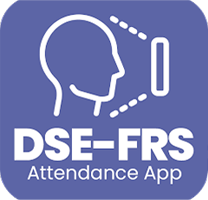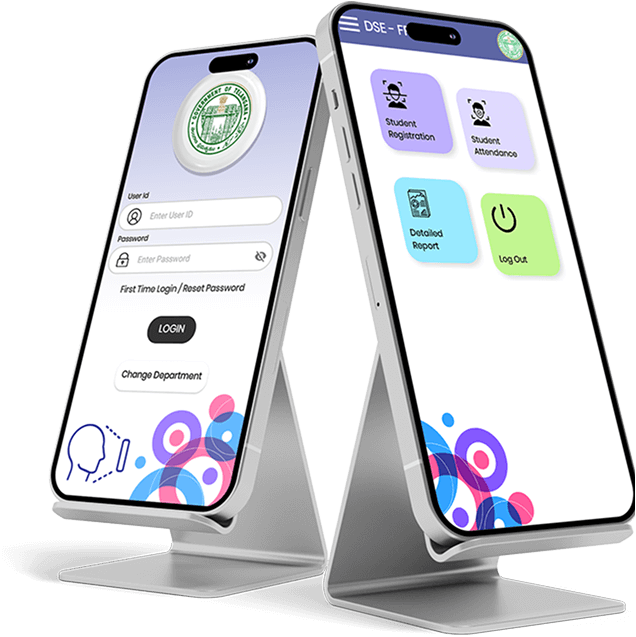Introduction
Specializing in artificial intelligence (AI), data analytics, and end‐to‐end SaaS solutions, RNIT AI Solution Ltd has developed a suite of innovative products that drive efficiency, accountability, and transparency in government sectors. Among its various offerings, the Education Management System (EMS) is a transformative tool that redefines the operational dynamics of state education departments. This case study explores how RNIT has revolutionized education in three diverse regions of India—Assam, Telangana, and Andhra Pradesh—through strategic contracts, cutting‐edge technology, and a robust digital framework.


The Need for Digital
Transformation in Education
Traditional education administration has long been plagued by inefficiencies, manual errors, and lack of real-time insights. With a vast network of institutes, students, and staff to manage, state education departments require solutions that can seamlessly integrate data capture, analytics, and operational management. RNIT’s EMS addresses these challenges by digitizing the complete lifecycle of a student—from enrolment and attendance to examinations and performance evaluations—using AI-based facial recognition, predictive analytics, and an integrated ERP system. This digital leap not only enhances transparency but also empowers decision-makers with real-time data, leading to more effective resource allocation and improved learning outcomes.

Impact in Assam: Siksha Setu AXOM Initiative
Assam’s education department recognized the need to modernize its assessment mechanisms. RNIT was entrusted with the responsibility of implementing the Siksha Setu AXOM initiative. This project focuses on assessing teacher and student performance across higher education institutions in the state. By deploying its AI-powered EMS, RNIT has been able to streamline attendance tracking, monitor performance metrics, and deliver actionable insights that drive academic excellence.
Key aspects of the Assam initiative include
Comprehensive Data Capture:
Over 43,923 schools are integrated into the Assam Shiksha Setu platform, covering more than 47,82,259 students and 2,11,863 staff. This extensive network enables state-wide data collection and monitoring, ensuring no institution is left behind.
Performance Assessment:
The project not only monitors attendance but also evaluates academic and behavioral performance through a combination of digital inspection and predictive analytics. This integrated approach helps in formulating targeted improvement strategies.
Real-time Analytics:
Utilizing AI and machine learning algorithms, the system processes facial recognition data to capture attendance and engagement metrics in real time. Such immediate feedback assists administrators in identifying areas that require intervention.

 By digitizing core operations, the Assam Education Department has significantly reduced administrative overhead and enhanced the overall quality of education—a change that has been widely recognized as a model for other states.
By digitizing core operations, the Assam Education Department has significantly reduced administrative overhead and enhanced the overall quality of education—a change that has been widely recognized as a model for other states.


Impact in Telangana: DSE - FRS
Telangana has been at the forefront of digital transformation under its ‘Digital India’ vision, and the education sector is no exception. RNIT was awarded the contract by the Telangana Education Department to implement a state-of-the-art Facial Recognition System (FRS) in government schools. This initiative aims to automate attendance tracking and bolster administrative efficiency in classrooms across the state.
Highlights of the Telangana project include
Automated Attendance Tracking:
The FRS solution has replaced manual roll-calls by capturing student and staff facial templates in real time. With over 21+ Lakh facial templates processed daily, the system guarantees accurate attendance records and minimizes human error.
Enhanced Operational Transparency:
Real-time data feeds generated by the FRS are directly integrated with the state’s centralized database. This transparency has led to improved accountability among teachers and administrative staff, ensuring that resources are utilized effectively.
Scalable Implementation:
The system’s architecture is built to accommodate rapid scaling. As more government schools adopt the system, RNIT’s platform seamlessly integrates new data, ensuring that growth in the number of institutions does not compromise system performance.

 The Telangana project has not only optimized daily operations but has also set a benchmark for leveraging AI in public administration. This success story underscores the transformative potential of digital solutions in enhancing educational outcomes and streamlining government operations.
The Telangana project has not only optimized daily operations but has also set a benchmark for leveraging AI in public administration. This success story underscores the transformative potential of digital solutions in enhancing educational outcomes and streamlining government operations.


Technology Integration and Product Features
At the heart of these transformative initiatives lies RNIT’s robust Education Management System. The platform is designed with several key features that cater specifically to the needs of large-scale educational administration
Key Product Features
AI-Based Facial Recognition:
The system processes over one crore facial templates daily, ensuring accurate and efficient attendance management. This technology not only minimizes errors but also drastically reduces the time required for roll calls and manual verification.
Unified Database:
By consolidating data from thousands of institutes, the EMS creates a centralized repository that simplifies data management. This unified approach allows for the seamless sharing of information between schools, colleges, and state departments.
Offline Mode Capability:
Recognizing the challenges faced by remote areas with poor connectivity, the system includes an offline mode that captures and stores data locally until synchronization is possible.
Predictive Analytics:
The integration of machine learning algorithms provides stakeholders with predictive insights, enabling them to plan resource allocation, maintenance, and academic interventions effectively.
Real-time Reporting and Dashboards:
With role-based access, administrators can generate real-time reports and dashboards, offering instant visibility into attendance trends, academic performance, and infrastructure usage.
These features, when combined, create a holistic digital ecosystem that transforms every facet of educational administration. The EMS not only enhances operational efficiency but also empowers decision-makers with data-driven insights that are critical for continuous improvement.
Outcomes and Benefits
The transformative impact of RNIT’s digital solutions across Assam, Telangana, and Andhra Pradesh is evident in several measurable outcomes
Key Product Outcomes and Benefits
Improved Accuracy and Accountability:
Automated facial recognition and digital data capture have reduced human errors, ensuring accurate attendance and performance records. This has led to enhanced accountability among educators and administrative staff.
Operational Efficiency:
Streamlined processes have cut down administrative delays and significantly reduced the workload on manual staff. The centralized EMS platform has accelerated routine tasks, allowing more time for strategic educational planning.
Cost Savings and Resource Optimization:
By digitizing operations, state departments have realized substantial cost savings. Reduced manual intervention and optimized resource allocation have resulted in better utilization of funds and improved maintenance of educational infrastructure.
Enhanced Decision-Making:
Real-time dashboards and predictive analytics provide administrators with actionable insights. These data-driven decisions help in identifying academic trends, forecasting resource needs, and planning future interventions with precision.
Wider Reach and Scalability:
The digital platforms are designed to scale, enabling smooth integration across thousands of institutions. This has allowed state governments to extend the benefits of digital transformation to even the remotest schools and colleges.

Challenges and Future Directions
Implementing large-scale digital solutions across diverse regions comes with its own set of challenges. Initial resistance to change, the need for extensive training, and infrastructure variability were some of the hurdles encountered. However, RNIT’s comprehensive support model—featuring on-ground training, continuous technical support, and adaptive software updates—ensured a smooth transition for all stakeholders.
Looking ahead, RNIT is committed to expanding its digital footprint. Plans for further innovations include enhanced AI algorithms for deeper analytics, integration with other government services, and exploration of emerging technologies such as the Internet of Things (IoT) to further augment the capabilities of their EMS platform. These initiatives are expected to propel the digital transformation of education even further, paving the way for a smarter, more connected future.
Conclusion
RNIT AI Solutions Ltd’s pioneering work in the digital transformation of education is a testament to the power of technology in revolutionizing public administration. By successfully executing high-value contracts in Assam, Telangana, and Andhra Pradesh, the company has demonstrated that comprehensive digital solutions can address complex challenges in education management. With innovative products like the Education Management System and cutting-edge AI-driven tools, RNIT has not only streamlined administrative processes but also enhanced the overall quality of education delivered to millions of students across India.
As states continue to adopt digital strategies under the ‘Digital India’ banner, RNIT’s success story serves as a benchmark for future projects. The significant improvements in operational efficiency, accountability, and decision-making are proof of the transformative potential of digital technology in education—a journey that is set to continue as RNIT drives further innovations in this critical sector.